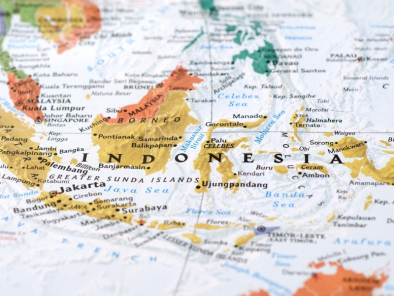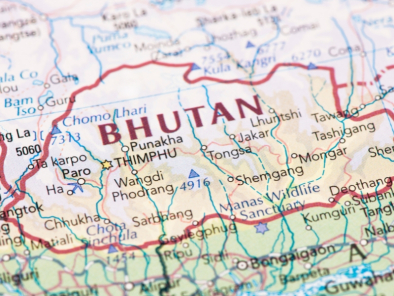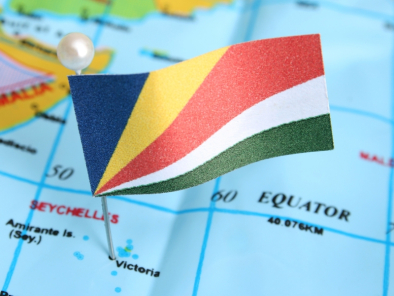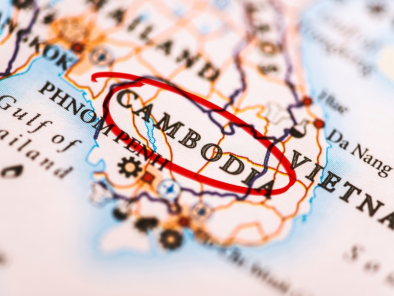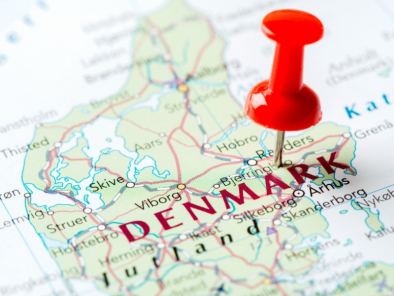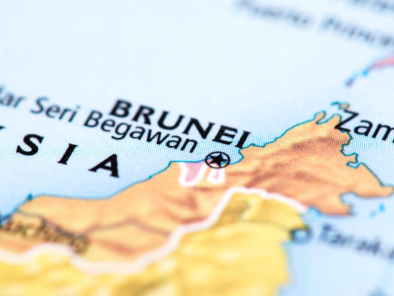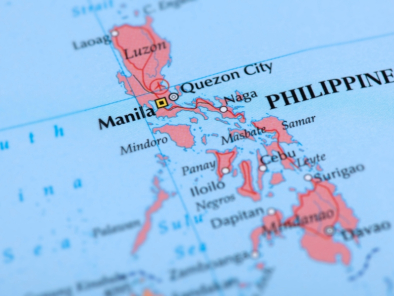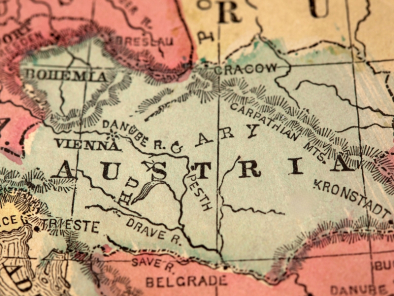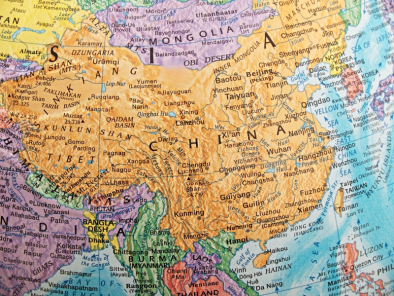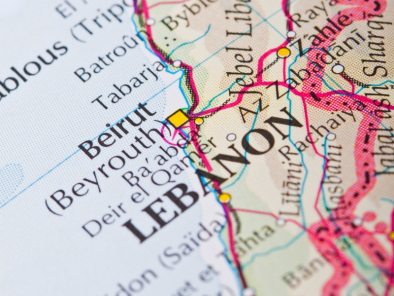
Posted by: Leo Travel Hub
The
country's landscape is equally mixed, from the dramatic sweep of
VISA: The visa is to be obtained prior to arrival in the country
LOCATION:
Situated
on the eastern end of the Mediterranean Sea,
CLIMATE:
For both regions summer is the peak time for visitors, although ironically the country is probably at its best in the May. October is also a good time to visit.
HOW TO GET
AROUND:
Beirut
International Airport is located 8km from the centre of the city. In
good traffic it should only take around 15 minutes to get to the downtown area.
By
Bus: Buses are the only public transportation available in the city. Two
operators provide services, LCC (red vehicles) and the government owned OCFTC
(blue buses). Buses are extremely cheap, costing LBP500 for almost any ride,
and they service all parts of the city. Bus stops are available everywhere but
even public buses will sometimes allow people to board outside of these
official stops.
In the cities taxis bearing red license plates are easily available, and short trips within the city centre should run between LBP5000 and LBP10000.
Points
to consider:
-
Service taxis which carry up to
five passengers at a time, are the easiest and most popular way of getting
around the country, and for travelers on a budget it is an ideal option.
-
Service taxis ply fixed routes from short hops to national connections, for an
agreed fare. The tariff is divided between however many passengers are in the
vehicle.
-
Service cabs can be found at specific taxi stands around the city - ask at your
hotel for the nearest one.
-
Outside of
-
A taxi rented out just for you
and your party is obviously more expensive but can be worth the cost. Just be
sure to negotiate a rate for the trip before you start and remember that the
more driving is involved the higher the day rate will be.
-
Drivers will expect tips as well so factor this into your thoughts when agreeing
the price.
-
Although taxis are extremely handy having a car of your own can be convenient,
especially considering everything in the country is within a comfortable
driving distance - if not a particularly comfortable drive.
-
If you decide to drive yourself, you will need a valid International Driver's License.
- The wearing of seatbelts is not compulsory but is heavily recommended.
CURRENCY:
Lebanese Pound (LBP). LBP1 = 100 piastres
TIPPING:
Tipping is expected although most restaurants do include a service charge in their bills. You are expected to leave 5-10% on top of this however. Taxi drivers will expect a similar tip, and you should allow for this when negotiating your fare.
TIME:
DIALING CODE:
|
International dialling code: |
961 |
|
Area codes: |
|
CITIES:
In
the middle of the 20th century,
Despite
the damage wreaked by 15 years of civil war, the city and the country are
bouncing back.
Be
sure to take a walk along the ocean on the wide promenades where families go
for afternoon strolls. You should also explore the Hamra district, which is always busy with student and arty types.
The nightlife throughout the city is vibrant with plenty of packed restaurants
and bars - particularly on
MUST SEES:
The
The
highlight is undoubtedly the sarcophagus of King Ahiram, a stone coffin over
3,000 years old discovered at
Open: Tue-Sun 09h00-17h00.
The
Located
on a hilltop looking down at the
Museum open: Mon-Fri 09h00-17h00 except during exam time and university holidays.
850m
above sea level in the Damour valley, around 40km from
Built
in the early 19th century, the palaces housed the dynastic royal family that
ruled
Today,
many of the buildings have been painstakingly restored to their original glory and there is much to
see in the complex. The inner apartments (Dar El Harim) of the Emir are the
most spectacular rooms. The audience chamber and waiting hall where petitioners
would gather are designed to display the wealth of the Emir through their
intricate mosaics and sculpted decorations. The upper and lower harems and
private courtyard of the Emir can also be visited.
Don't
neglect to visit the several museums at the site. The Rashid Karami
Archaeological Museum in
the outer courtyard contains a valuable collection of artefacts from various
periods of history while the massive stables are home to the
Excursions
from
Jeita Grotto:
Also
near
The
upper level is a magical sight, as you walk through the huge subterranean world
of stalactites and stalagmites, including one of the world's largest
stalactites, which measures 8.2m. The formations are enormous and so varied
that your imagination will find all sorts of shapes and creations amongst them.
The lower level includes a lake that you travel across by boat, surrounded at all times by the
spectacular rock configurations.
Jeita
Grotto
open: 09h00-17h00 (open until 18h00 or 19h00 at weekends Jun-Aug). Lower level closed: Nov-Feb, or whenever the water level is too high for visitors.
Easily
combined with Jeita Grotto on a day trip is the ancient city of
The
charming modern city boasts shops and restaurants alongside the glistening
Mediterranean, but
The
Phoenicians and Romans both ruled here in the past and the city was for
centuries a centre of trade and culture,
closely tied to
Further
north along the coast is the city of
In
the rabbit warren of the old town, where the narrow alleys form shadowed
tunnels, you'll find all manner of merchants and stall holders peddling
everything you could imagine. Most famous is the Jeweller's Souk, where
fine pieces of filigree gold jewellery or bejewelled pieces set with rubies or
other gems can be found.
Leave
the temptations of the market behind to explore
Heading
south from
Hotels in
Hamra has plenty of
variety with everything from basic but comfortable two and three-star hotels in
low level buildings to massive modern five-stars. Downtown you'll find
more of the latter, gleaming internationally-owned highrises hiding luxurious
modern hotels. Prices all over the city are reasonable considering the location
and service you receive. Head for the Corniche if you want to escape the
city without leaving it completely, west of Hamra and Ras Beirut the beaches
and bays around Pigeon Rocks hide resort hotels, offering more space
than in the city centre.
For the ultimate seaside location, head for the Sheraton Coral Beach, a
large, resort-style hotel right by the sea with excellent amenities and
comfortable, modern rooms.
A little closer into town, the Sheraton Four Points is a short hop from
the sea, while being within fairly easy reach of central attractions and
restaurants. Again, the Four Points is extremely comfortable and offers the best
in modern amenities including a pool and well-equipped gym.
If you'd rather get away from the bustle of the city, the Movenpick Resort offers
a magnificent coastal location just a few minutes' drive from the centre. With
its own private beach and swimming pools and a good choice of restaurants and
sports facilities, this too is an excellent five star hotel.
FOOD:
Walking
through the mainly pedestrianised downtown area of
In Gemaizeh, a colonial period area just a two-minute walk east from downtown,
there are several very good international restaurants that are more suited to
dining. Head for Rue Gouraud, the boom location for young restaurants, with
popular names including Food Yard, La Streza (a good quality
Italian), Chez Paul (a French bakery with excellent pastries) and the
more traditional La Tabkha, which serves delicious home-made Lebanese
cuisine at affordable prices. Le Chef is probably the best known Arabian
restaurant along here, and is extremely popular with locals (note that there's
no alcohol served). Alternatively, if you're not that hungry, drop in to the Gemaizeh
Café, previously the meeting point of political firebrands, but now
reinvented as a modern café, that still serves the traditional nargileh pipes
and strong coffee. This is widely tipped to be the next big area in the city,
and new contemporary restaurants are opening here week on week.
Achrafieh is the heart of
Still in Rue Monot, Pacifico offers good Mexican food with a cosy and
friendly ambience for drinks. District provides an excellent choice of
international cuisine and after midnight, the dance music starts up.
The hub of the old city, Hamra is rich pickings for people seeking traditional
café style food as well as some Western cuisine. You'll find a mixed bag of
local student hangouts, Western pubs and restaurants. Along the Corniche (Av de
Paris) you'll find city favourites such as Taj Al Moulouk and
With the increasing number of all kinds of restaurants, it is almost impossible
to encompass the entire range of cuisines available in
SHOPPING:
Shopping
in
Prices are generally less than in Europe or
If
your taste runs to the more unique or culturally representative souvenirs, you
should head to the markets of smaller towns like Byblos or Tripoli. Available products include brass and other metalwork, leather products including
bags, shoes and cushions, antiques and wooden items. Among the latter you will
find remarkable inlay work using mother of pearl as well as traditional mashrabeyya,
carved wood in the form of furniture and screens made with intricate
craftsmanship.
Of
particular interest is a selection of stores selling fossils in the Old Market in
On
your way into the town of
Shopping in
The
downtown area is the central shopping district, with everything from
small, tourist-oriented handicraft shops, to bargain-priced jewellers and a
selection of high fashion malls. The most luxurious department store is Aishti.
It stocks the world's best known labels from Gucci to Nike, although prices can
be extremely high for the best items (not that it seems to make any difference
to the upper class Beiruti shoppers).
Modern shopping malls can be found all over the city. Dunes in Verdun St
offers several storeys of shops along with a food court and peripheral
entertainment. It's mainly clothing on offer through various outlets, with a
mixture of Western and Arabic fashions on show. Other mini-malls in
Jewellery and handicraft shops can also be found in Hamra and Achrafieh in much
smaller outlets. These have the advantage of feeling more authentic, and you
can even haggle at least some of the prices down. Check listings for the
open-air Souk al-Barghout. This occasional market is held three times a
year at various locations around downtown (Solidaire), and recreates the feel
of an old Lebanese market, albeit with some modern additions. Along the
Corniche look out for the outlet of Artisans du Liban et d'Orient,
offering an array of handicrafts including artworks, clothing and practical
items.
Due to a high customs tax, imported goods are usually expensive. For cheaper
shopping,
If you're looking for a souvenir you can't go far wrong with some local wine.
Shops open Mon-Sat 10h00-13h00 and 15h00-21h00. Some shops may close on Sundays but those that remain open tend to be open: 10h00-13h00 and 15h00-18h00
NIGHTLIFE:
The number one nightclub in the city, and the one that every party person worth
their salt should head for, is B018. This innovative institution is
built in a subterranean bunker, in the middle of a car park, hardly the most
salubrious location for a nightspot. Ringed by floodlights you enter through an
industrial metal entrance, descending underground into the club. Inside, the
effect is modern Gothic, the plush benches on close examination resembling
coffins, hinged to be flipped shut to act as dance podiums. The entrance fully
retracts, and each morning it's opened to the dawn as people continue to party
inside - an exhilarating experience. Any resemblance to a wartime bunker is
wholly deliberate: the building was the brainchild of Bernard Kouhy and
is intended as a homage to the spirit of the city that kept on partying
underground even as the bullets flew overhead. The club opens around 21h00 but
don't expect the party to end until well into the next day (plenty of people
don't even arrive until 02h00-03h00). Located 10km from the city next to Forum
de Beyrouth at La Quarantaine. Tel: +961 (0) (0)3-80-0018.
The main clubbing area in
Also around here and worth looking for are Zinc, off Rue Monot at the
bottom end of the street, and Atlantis, along the Rue Université St
Joseph, which runs off Rue Monot by the university. This latter is a truly
decadent palace, famous for its huge fish tank dance floor. Other lesser clubs
and bars include Element, Mint, the Hole in the Wall and the Lila Braun
cocktail lounge.
In the downtown area check out Strange Fruit, one of the city's newest
and hippest bars, in the Starco Centre. At the vanguard of the area's revival
to outdo Rue Monot, it features great music and innovative style in a converted
cinema.
SAFETY:
Be
aware that you need to carry ID
with you at all times, if travelling in some areas it is possible that you will
be asked for it by military personnel. Note that unlike elsewhere where often a
photocopy of your passport may suffice, in
Respect
the Muslim culture in your dress and behaviour. Public drunkenness is
forbidden. In Beirut Western style clothes are more widely tolerated, but you
should still try to dress conservatively. Religious sites require that you are
modestly dressed to be allowed entrance and in the more Orthodox Muslim areas
of the country women should wear loose-fitting clothing to avoid offending the
locals

